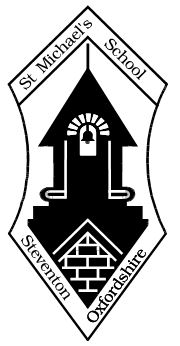Additional Provision
All children receive tailored provision in their learning through high quality adaptive teaching, following a carefully planned ambitious curriculum. At St Michael’s we emphasise that for academic progress, children need good levels of emotional health. For reasons such as having additional needs, trauma, bereavement we offer a range of additional provision to support them with their ability to access this curriculum. We do this through a carefully created tiered system of interventions.
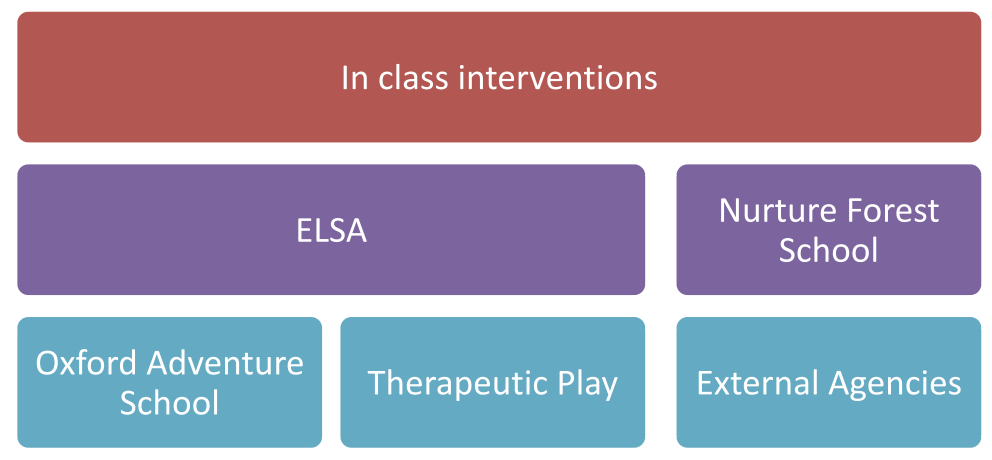
ELSA
Definition: ELSAs are emotional literacy support assistants. They are teaching assistants who have had special training from educational psychologists to support the emotional development of children and young people in school. Trained in art therapy as well as ELSA.
Remit: ad hoc support for children showing signs of EBSA. Support working with families (building relationships) with low attendance and who are PP. Providing ELSA interventions in 6 - 12 week blocks. Works with Forest school to also provide nurture forest school sessions.
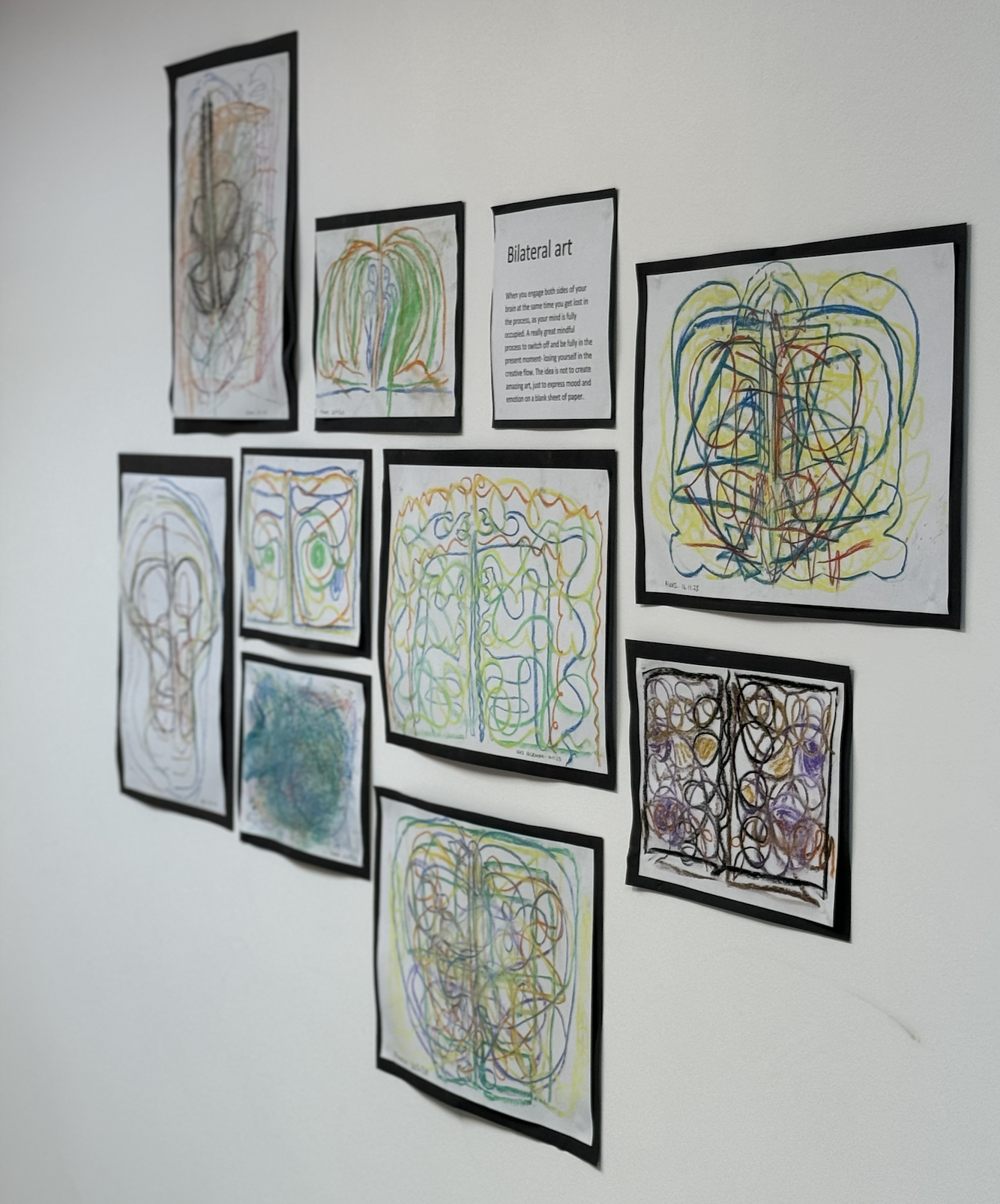
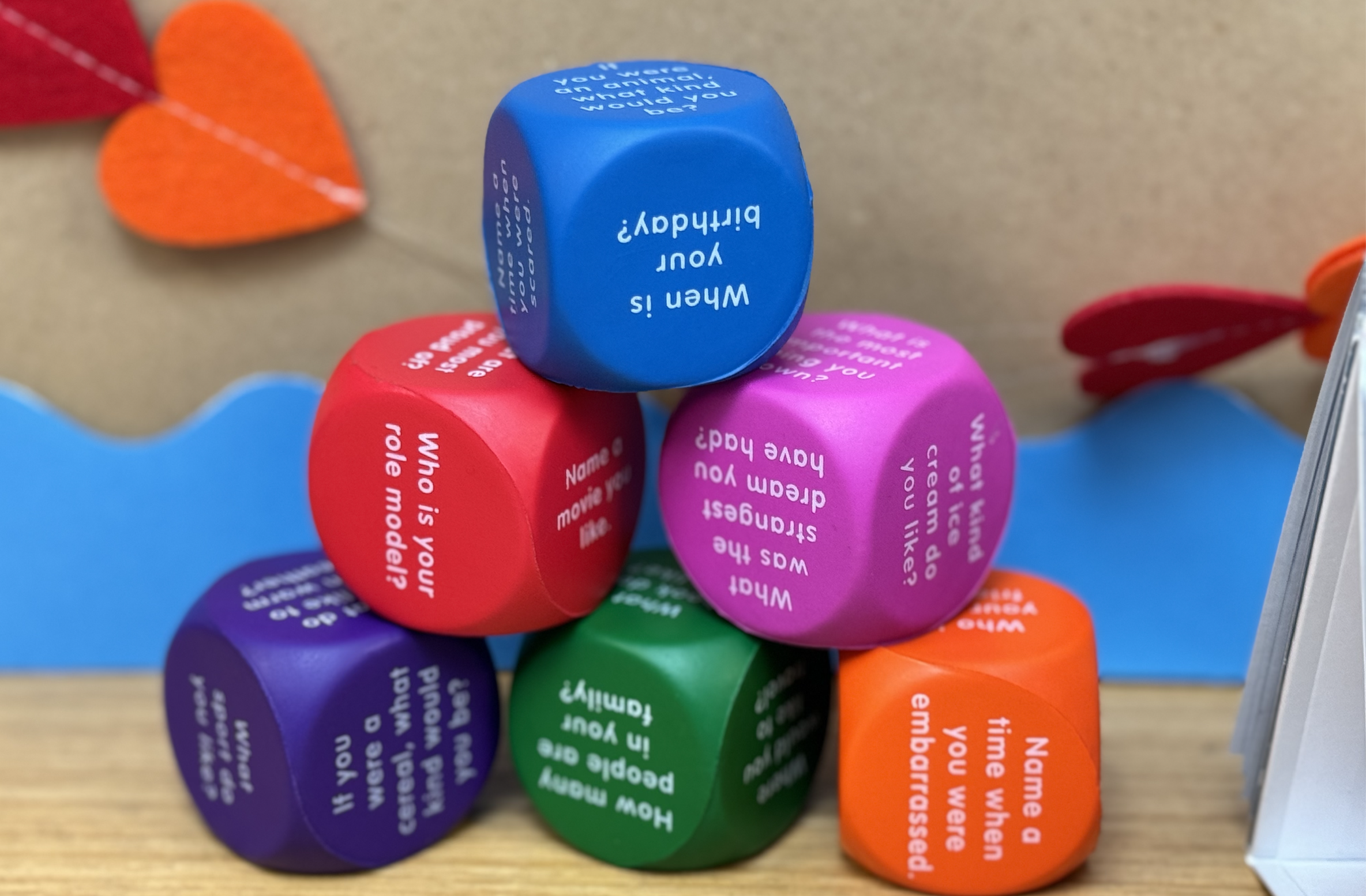
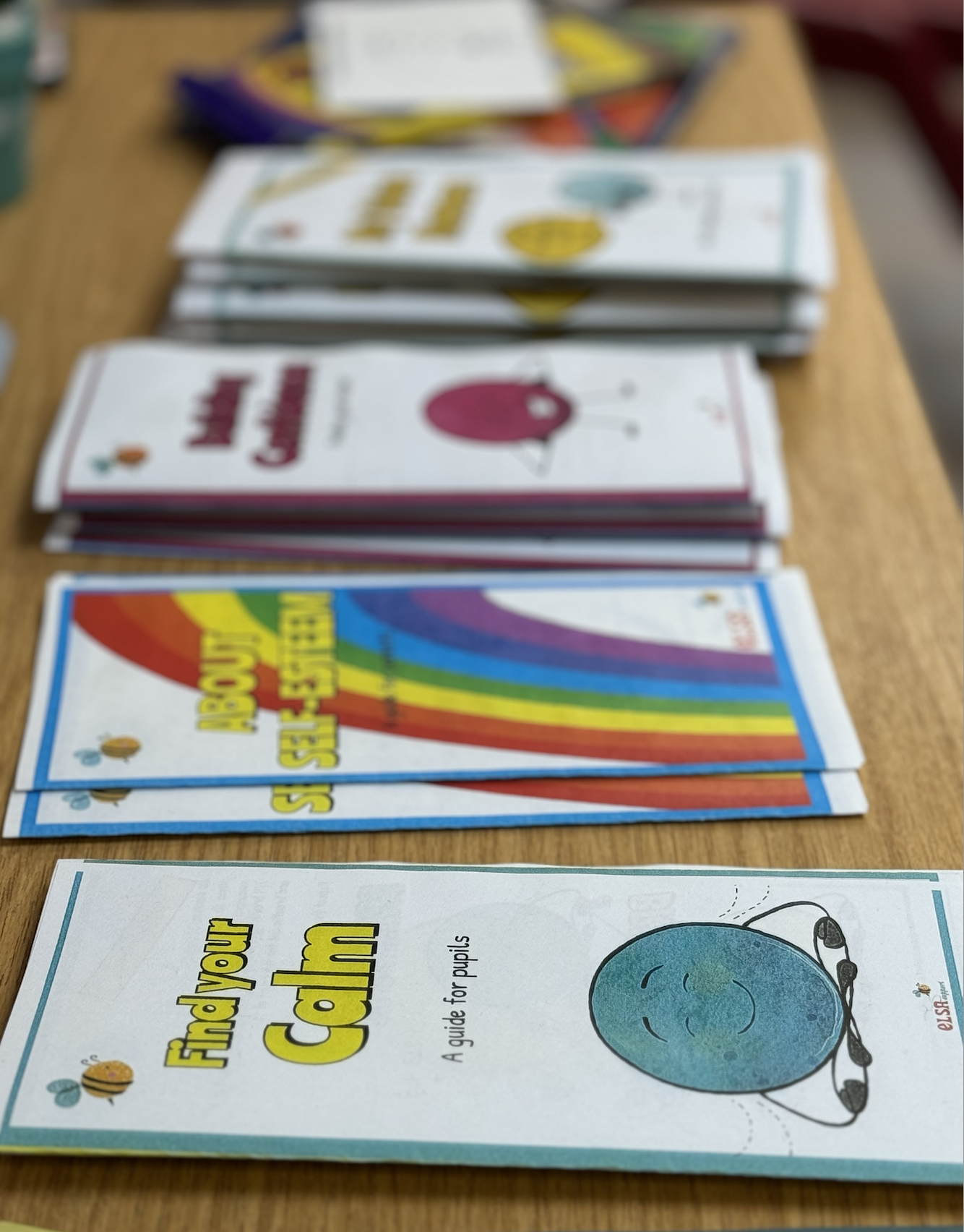
Nurture Forest School
Definition: An inspirational process that offers children opportunities to achieve and develop confidence through hands-on learning in a woodland environment.
Remit: This is a short-term, focused intervention strategy to support children who have attachment related social, behavioural, emotional and wellbeing needs which could otherwise become long-term barriers to learning and attainment.
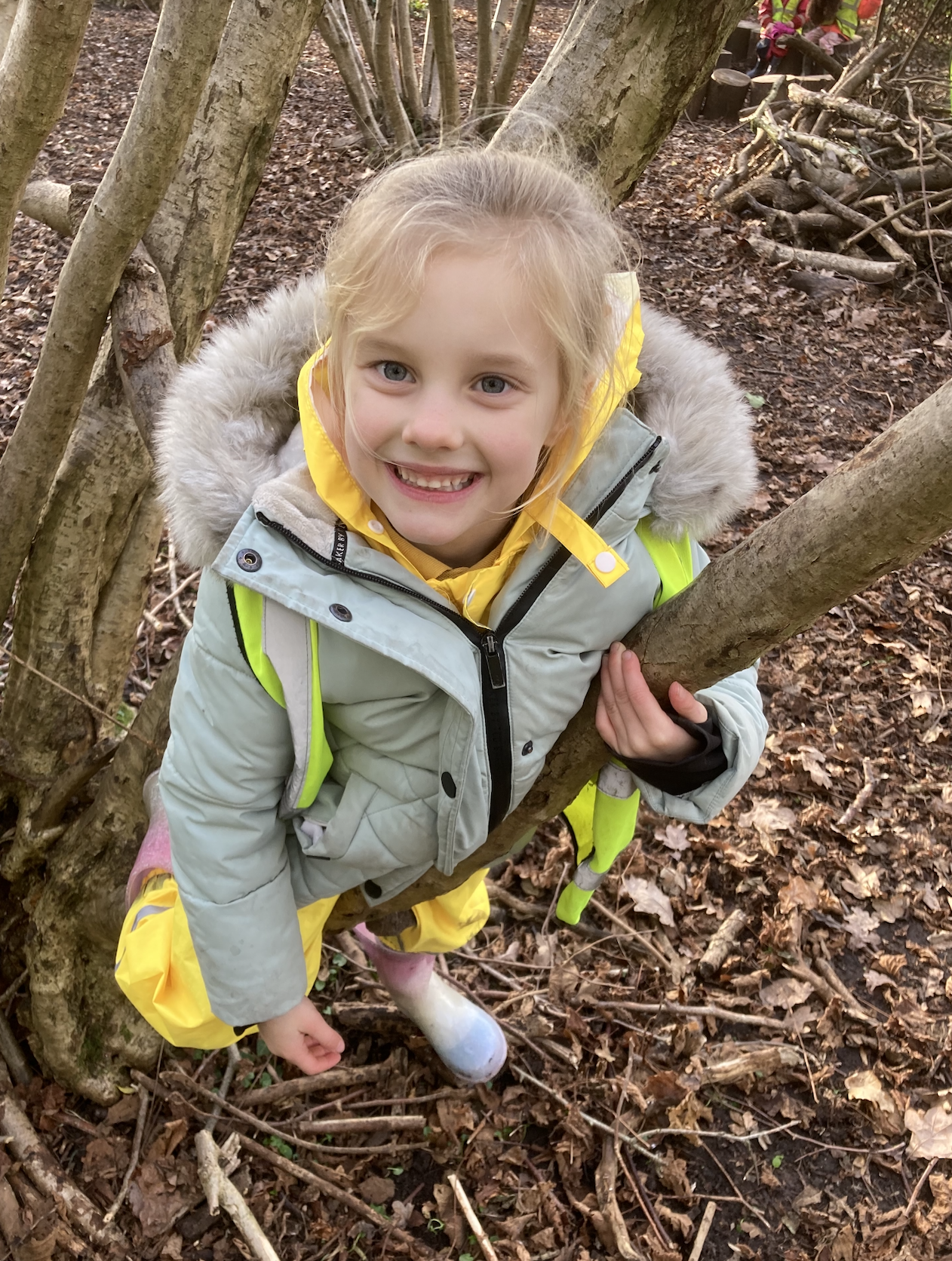
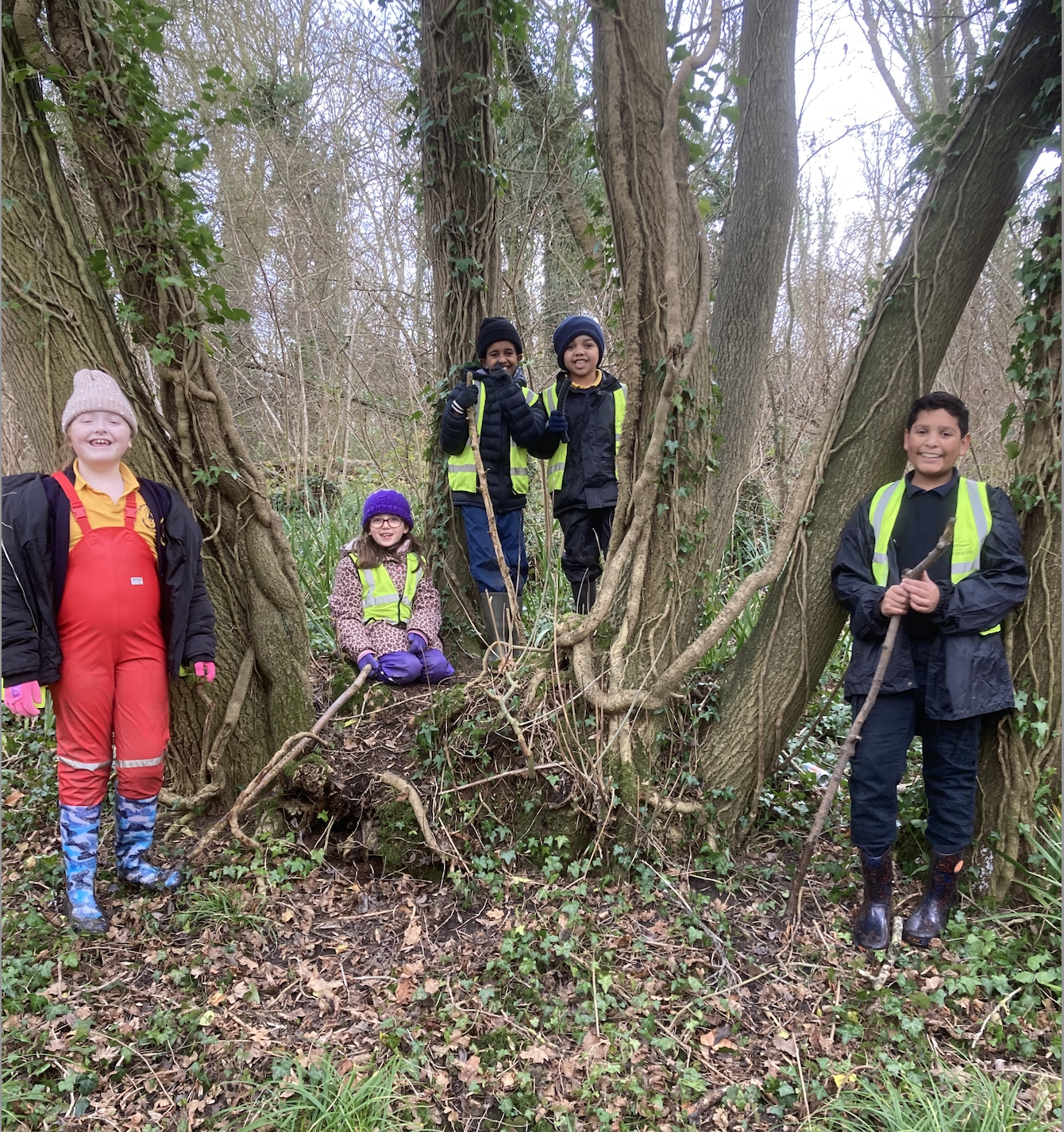
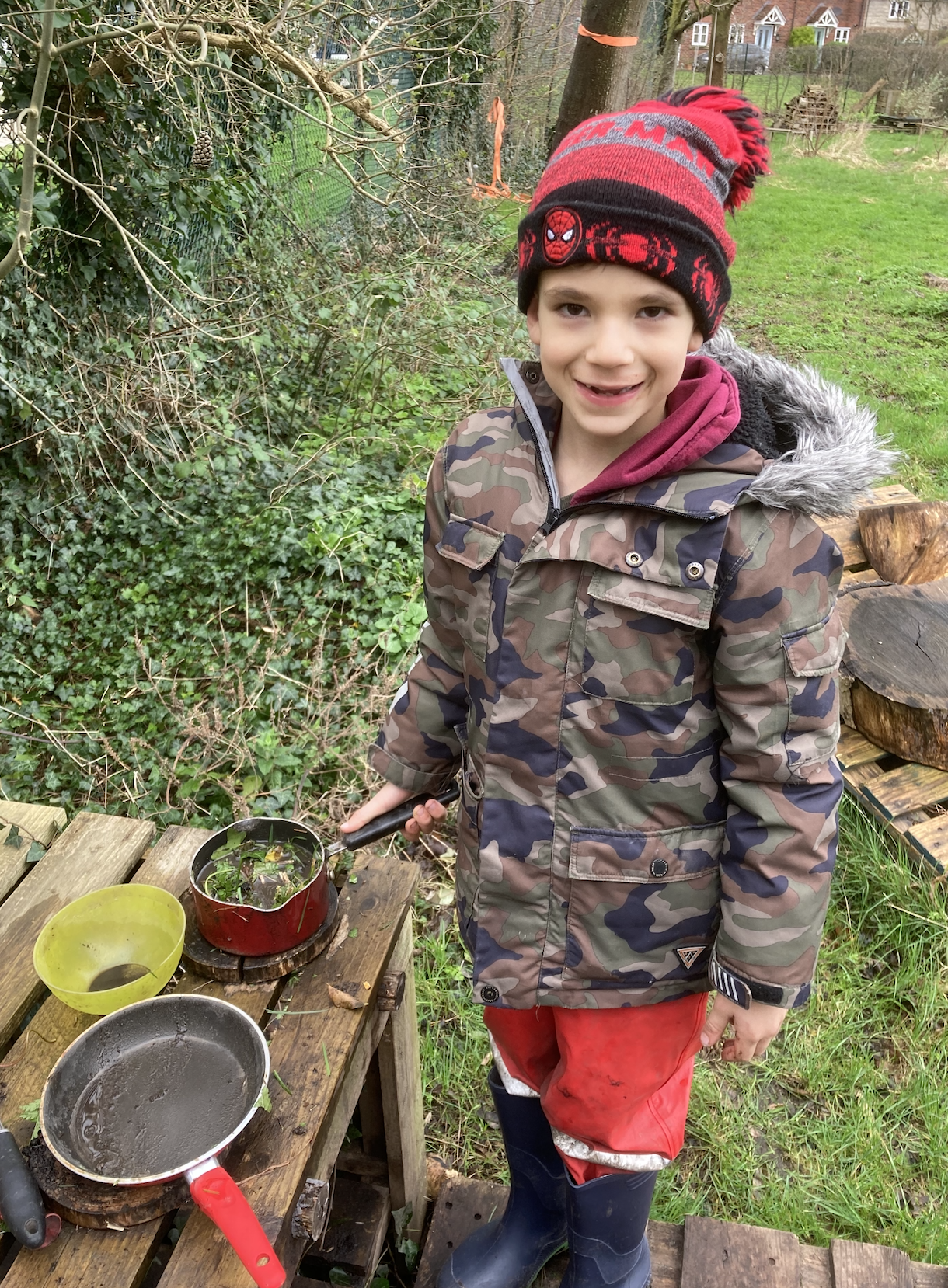
Oxford Adventure School
Definition: bushcraft programs for young people struggling to thrive in mainstream education and for students who just need that extra something to help them thrive. NOLA (National Outdoor Learning Award) is a nationally recognised award (created by Dr Roger Hopper), which children achieve by participating in the outdoor program.program runs for 7 weeks; with a 2hr session each week.
Remit: The aim for the school is for children who struggle academically to move from being apprehensive participants into confident learners. Students experience authentic mastery experiences, including; learning skills, managing risk and knowledge of the environment. This in turn builds confidence to have more of a growth mindset in all areas of learning and life.
Therapeutic Play
Definition: Play therapy is defined as the systematic use of a theoretical model that establishes an interpersonal process, in which trained therapists use the therapeutic power of play to help children prevent or resolve psychosocial difficulties and achieve optimal growth. It is a form of counselling or psychotherapy in which play is used as a means of helping children express or communicate their feelings. Play therapy supports mental health conditions or behavioural disorders and trauma.
Remit: Play Therapy sessions build a child’s ability to develop healthy and resilient relationships, and to work though traumatic experiences which may be preoccupying them. Pre-occupying difficult feeling can make learning at school or managing feelings impossible.It helps children to express their feelings, understand how they feel when they cannot put it into words. Using play means that the child can explore their thoughts and feelings in creative and dynamic ways, without having to use words to articulate themselves.
